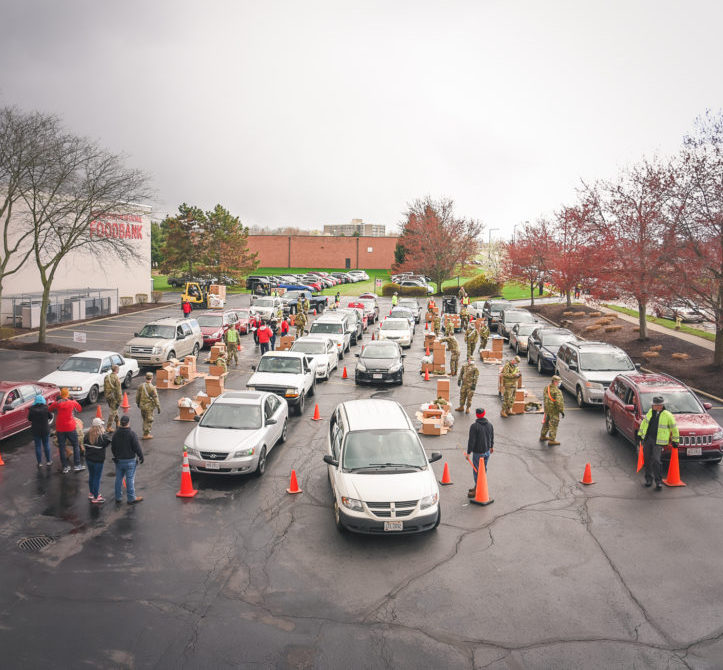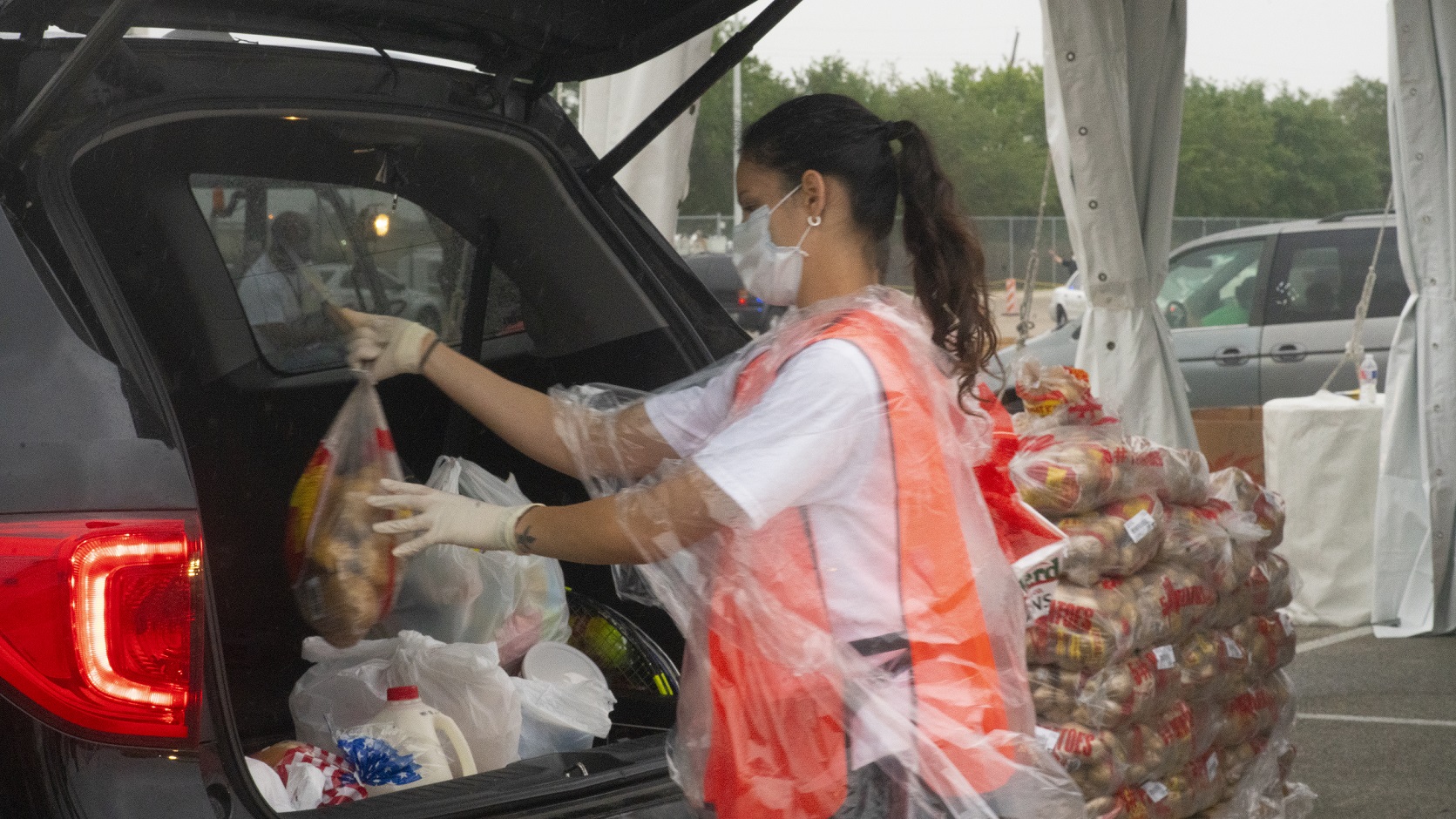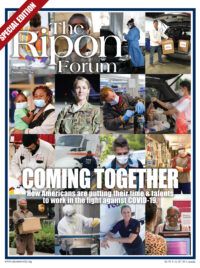
At a food bank distribution last month in San Antonio, an unprecedented 6,000 families pre-registered to receive assistance. 10,000 showed up. Just this week, the Arkansas Foodbank scheduled a mobile food distribution from 11 a.m. to 2 p.m. but ran out of food after an hour. Cars had begun lining up before dawn, and they could have served 2,000 more families.
From Pittsburgh, Pennsylvania to Pittsburgh, Kansas, photos of lines of cars that stretch over the horizon or of tightly packed lines in parking lots have gone viral. These photos will long serve as a testament to the unprecedented challenges the COVID-19 crisis has brought.
COVID-19 has upended our food supply chain. Over 72 billion pounds of food are wasted each year, a number that is likely to increase this year due to COVID-19 changes to the food supply chain. While we don’t have a problem growing enough food to feed everyone in our country, we do have a food connection problem. At the root of that problem is an overwhelming increase in demand, a stark illustration of how close so many families are to needing charitable and government assistance.
The more we help families in crisis now, the more economically self-sufficient they will be in the future.
The latest survey of Feeding America’s network of 200 food banks showed an average increase in demand of 70 percent. Our network estimates that 40 percent of the people we now serve have never been to a food bank before. Making the situation more challenging, many of our 60,000 partner food pantries and meal programs have closed or suspended operations, the number of volunteers has dropped significantly, and retail donations have declined.

It is the perfect storm for our nation’s charitable food system. The more we help families in crisis now, the more economically self-sufficient they will be in the future. Feeding America estimates that COVID-19 could cause an additional 17 million Americans to face hunger, many of them children. It is a reminder that even as the COVID-19 curve flattens, the hunger curve will not.
Thankfully, we are not alone in facing this historic challenge. We work in partnership with faith groups and local community organizations on the ground and have built strong relationships with the private sector across the food industry. We are fortunate to be supported in our mission by donations from Americans in every part of the country. We are also indebted to our volunteers and staff, the very definition of front-line heroes, who risk their own health to serve our neighbors who need our help right now.
We are grateful to congressional leaders who have prioritized investment in federal nutrition programs through legislation that increased funding for The Emergency Food Assistance Program and flexibility in child nutrition programs to help ensure children have access to meals when school is not held in classrooms. We know the leadership and staff at the U.S. Department of Agriculture have spent long hours to implement those changes and to stand up the Coronavirus Food Assistance Program. We are committed to our partnership to help ensure those efforts result in connecting food with people who need it in communities across the country.
At the same time, we know this will not be enough. Our efforts are an important component in the fight against hunger, but no amount of charitable intervention will meet the current need without an accompanying increase in benefits in the Supplemental Nutrition Assistance Program (SNAP). SNAP is this nation’s first line of defense against hunger. It is also among the most important lines of defense against an economic crisis.
No American should have to wonder where their next meal will come from, before, during or after a food crisis like this one.
In fact, during the last economic downturn, studies showed that for every dollar spent on SNAP, about $1.70 was returned to the economy. The Congressional Budget Office and Moody’s Analytics rate SNAP as one of the most effective supports during economic downturns, supporting local retail in rural areas that need those dollars the most.
This crisis has exposed the fragility of food security in America. Many of the same families and the same cars lining up at food distribution centers today were in the aisles and parking lots of our nation’s supermarkets just a month before. These families never imagined they would need a helping hand. Our staff and volunteers hear the same thing from these Americans whose paychecks have vanished overnight: “I will do anything to feed my family.”
No American should have to wonder where their next meal will come from, before, during or after a food crisis like this one. At Feeding America, this crisis has challenged our network to continue to provide nutritious meals. Moreover, our network of food banks remains on the ground after the bigger crisis passes, providing support to people who need help because of less visible crises in their lives. As this difficult time passes, we will continue to work with Congress to better connect food with people in need. Our goal, as always, is that no one will need charitable or government assistance to feed their families, but until we reach that aspiration, we are committed to helping people emerge stronger than ever.

Kate Leone is the Chief Government Relations Officer of Feeding America.




